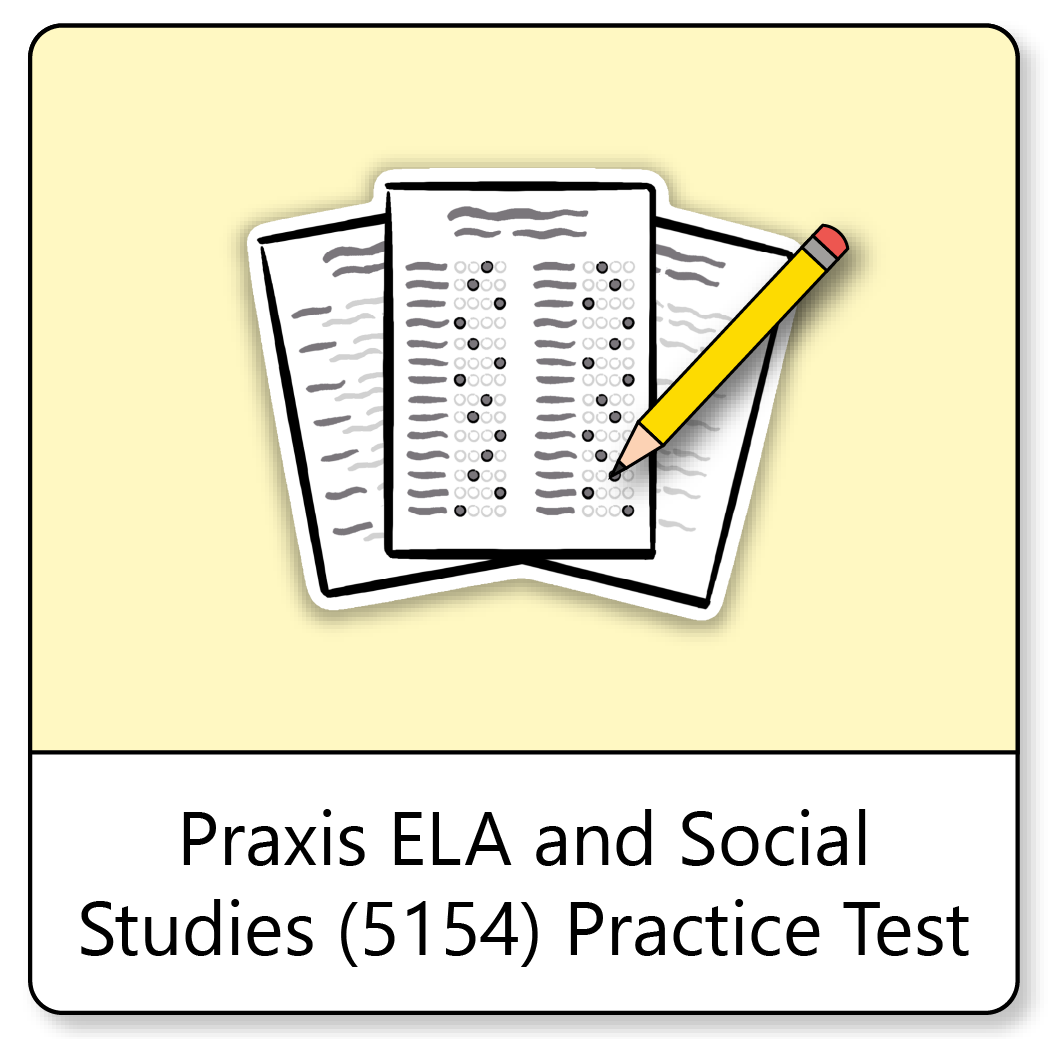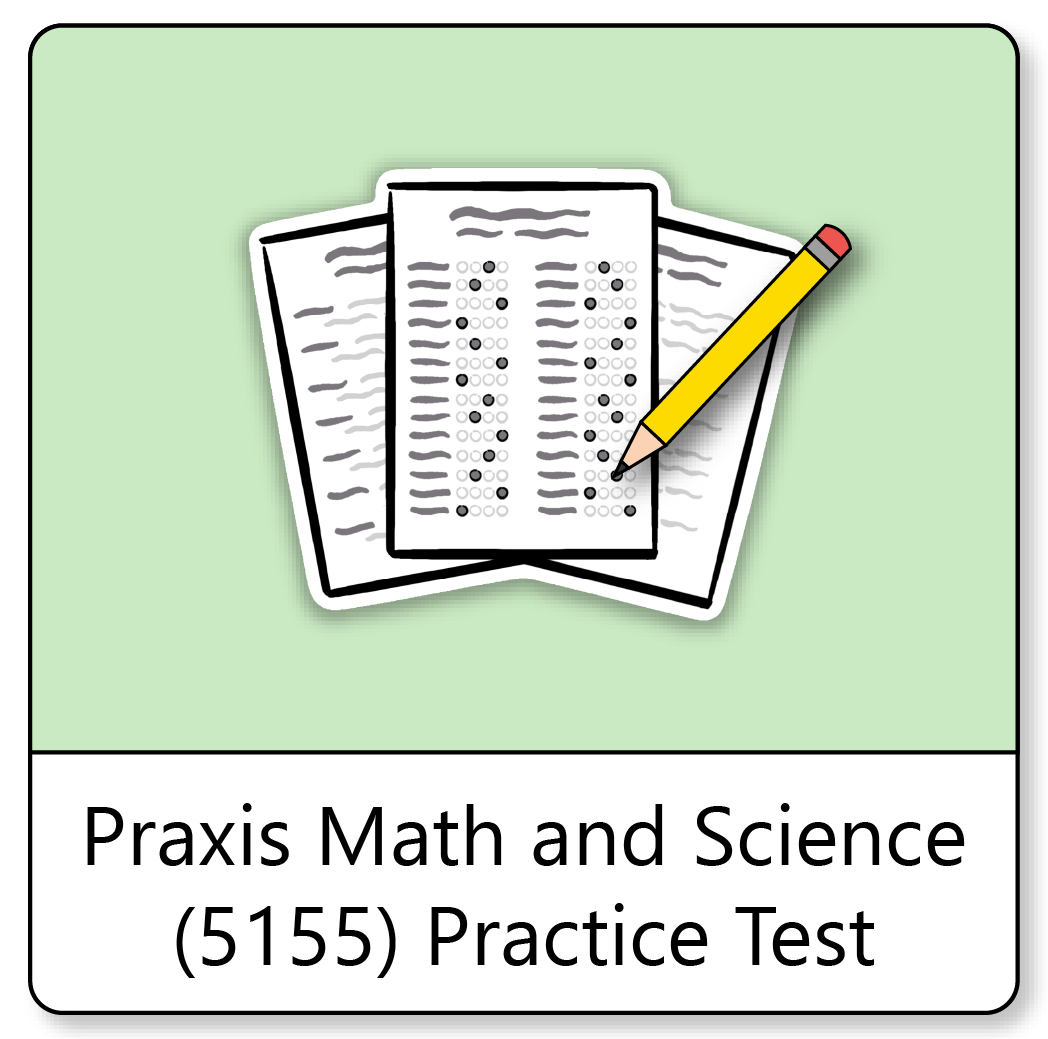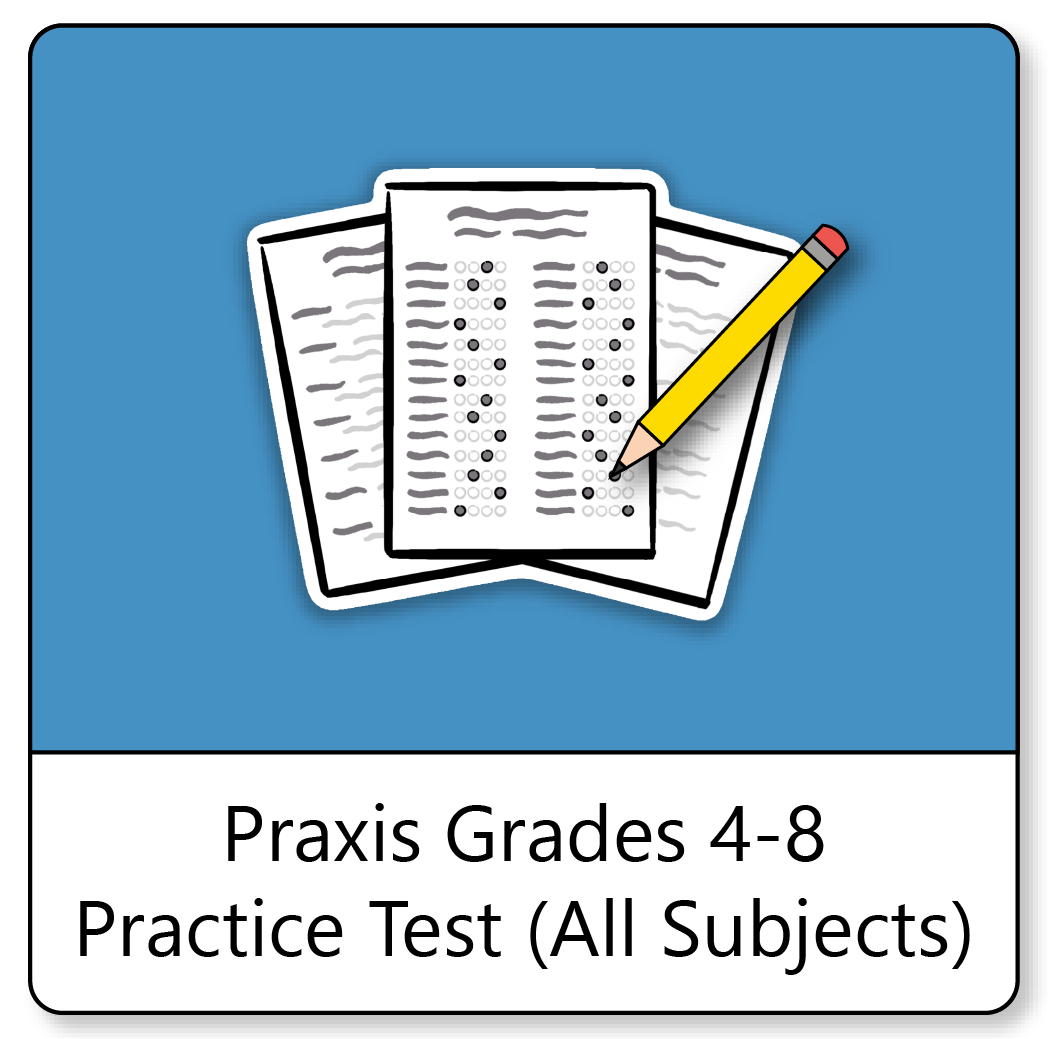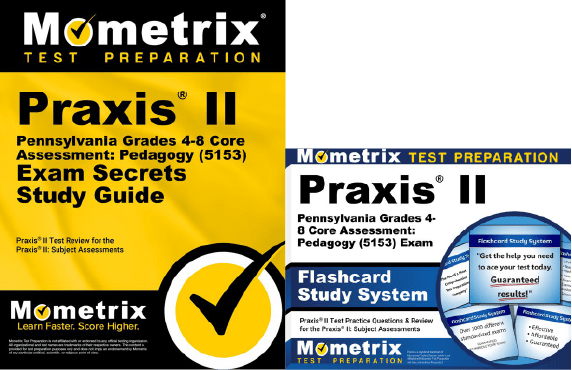If you need help studying for the Praxis® Pennsylvania Grades 4–8 Core Assessment: Pedagogy test or just want some more information about what the test is like, you’ve come to the right place!
Click below to take a free Praxis Pennsylvania practice test!
What’s on the Exam?
First, let’s talk about the questions on the test. There are 80 selected-response questions in total.
Selected-response questions can appear in several different forms:
- Single-selection multiple-choice
- Selecting ALL correct answers from a list of choices
- Selecting the correct answer from a drop-down menu
- Clicking parts of a graphic such as a map or a chart
- Dragging and dropping answers into a targeted area on the screen
The time limit for the test is 80 minutes (1 hour and 20 minutes), which means you have exactly one minute per question. There aren’t any scheduled breaks, but you’re free to take restroom breaks as needed!
Let’s take a closer look at the two sections of the test:
1. Adolescents as Learners
18-20 questions
- How young adolescents learn
- The distinguishing characteristics of young adolescent development
- Major contributions of foundational theorists to education
- Terminology related to learning theories
- The impact of learning theory on the instructional process
Adolescents as Diverse Learners
- Variables that affect how adolescent students learn
- The impact of individual differences on adolescent learning
- The impact of legislation on classroom practice
- The traits, behaviors, and needs of students with special needs
- The effect of English language acquisition on experiences of learners
- The effect of culture and gender on communication
Student Motivation and the Learning Environment
- The implications of foundational motivation theories for instruction and learning
- Strategies for classroom management
- Strategies for establishing a positive, nurturing, and respectful learning environment
- Supporting the development of motivation in young adolescents
2. Curriculum and Instruction
21-24 questions
- The impact of national and state content standards on instruction planning
- Applying the basic concepts of educational theories when planning instruction
- The effect of scope and sequence on instructional planning
- The integrative nature of subject matter
- Selecting content to achieve unit and lesson objectives
- Developing instructional objectives
- The role of resources and materials in planning instruction
- Accessing and utilizing resources to meet diverse learning needs
- Developing lessons as part of units
- Collaborative processes for instructional planning
- Short- and long-term planning techniques
- Planning instruction based on students’ prior knowledge
Instructional Strategies
- The distinguishing characteristics of instructional models
- Strategies to encourage complex cognitive processes
- Promoting development of self-regulatory skills
- Advantages and disadvantages of different group configurations for learning
- Teaching an instructional objective
- Monitoring and adjusting instruction
- The role of teachable moments in instruction
- Reflecting upon and analyzing the effectiveness of instruction
- Questioning techniques
Communication Techniques
- Verbal and nonverbal communication techniques
- Techniques to promote communication
- Instructional strategies to support literacy development
3. Assessment
14-16 questions
- The distinctions among different forms of assessment
- Formal and informal assessments
- Purposes of standardized tests
- Norm-referenced and criterion-referenced tests
Assessment Data
- Data-informed decision-making
- Communicating the meaning of assessment results
Assessment Design and Tools
- The design of assessments that target standards and academic anchors
- Terminology related to scoring
- Selecting assessments to measure student mastery of learning goals and objectives
4. Professionalism
17-20 questions
- The rationale and purpose of middle level schooling
- Middle level philosophy
- Middle level trends and issues
- Organizational features of middle level schools
- Developmentally responsive middle level school practices
Professional Development
- Various professional development resources and practices
- Research on curriculum, assessment, and instruction
- The value of reflective practice for professional growth
Professional Practices
- Implications of legislation on education
- The roles of teachers as educational leaders in the community
- The value of developing collaborative relationships to support the education process
Other Praxis Practice Tests
Subject-Specific Practice Tests
If you need some extra practice for a another Praxis Pennsylvania Grades 4-8 test, click one of the subjects below to get started!
Full Practice Test
If you’d like to test your full range of knowledge, click below to take a full Praxis Pennsylvania Grades 4-8 Core practice test that includes every subject:
How to Register
To register for the test, you’ll need to create an account on the ETS website. Once your account has been created, you can submit your application to take the test.
When you submit your registration, you will need to pay the $50 testing fee.
Praxis Scores
The Praxis Pennsylvania Grades 4–8 Core Assessment: Pedagogy test is scored using a scaled scoring method. Here’s how it works:
For every question you answer correctly, you get one point added to your raw score. At the end of the test, your final raw score will be converted to a scaled score. This scaled score will range somewhere between 100 and 200.
The reason your raw score is converted to a scaled score is because everyone that takes the test is given a slightly different set of questions. Since everyone has a different arrangement of questions, and because some questions are harder than others, converting your raw score to a scaled score ensures a more even playing field.
FAQs
How many questions are on the Praxis Pennsylvania Grades 4-8: Pedagogy exam?
The exam contains 80 questions.
What is the time limit for the Praxis Pennsylvania Grades 4-8: Pedagogy exam?
The exam is timed at 1 hour and 20 minutes.
What is the passing score for the Praxis Pennsylvania Grades 4-8: Pedagogy exam?
You’ll need to get a final score of at least 162 to pass the exam.
How much does the Praxis Pennsylvania Grades 4-8: Pedagogy exam cost?
The testing fee is $50.
Praxis is a registered trademark of Educational Testing Service, which is not affiliated with Mometrix Test Preparation and does not endorse this page.



 Praxis Study Guide
Praxis Study Guide Praxis Flashcards
Praxis Flashcards


